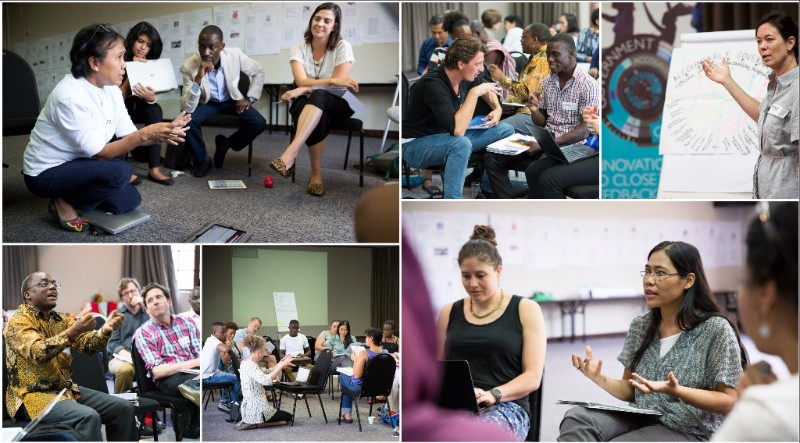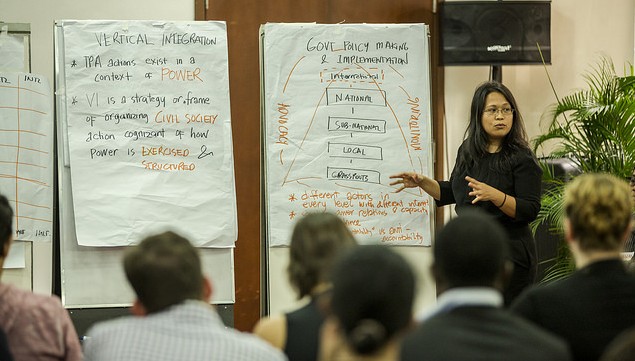In March, Making All Voices Count convened the third and last of its international learning and inspiration events. These three events have all been designed to allow participants to engage with, and learn from, the knowledge and experiences of other researchers and practitioners working in the field of accountable governance.
Each brought together participants to think collaboratively about how technology can be used to enhance citizen engagement and improve government responsiveness. Each also included facilitated learning visits to local tech for transparency and accountability initiatives.
Last week, we published our report of the final event, held in South Africa in March. In this newsletter, we highlight not only this latest publication, but also the reports of the first two events held in Tanzania in May 2014 and the Philippines in February 2016.
More accountable and responsive governance: how do technologies make it happen?
The Johannesburg learning event formed part of a process of consolidating and analysing what has been learned from across the programme. Its starting point was a set of descriptions of seven different ways that technologies could expected to enable governance changes, developed from an analysis of the projects supported by Making All Voices Count. These seven streams of change – information, feedback, naming-and-shaming, conducive innovation, connecting citizens, infomediation and intermediation – framed discussions of each project, and participants’ analysis of learning visits.
No single stream of change tells the whole story of tech-enabled approaches to responsive, accountable governance… The differences between the streams are often blurred, and the sequence of change is important to outcomes. Different strategic approaches to change are needed at different stages as initiatives unfold and develop.

Transforming governance: What role for technologies?
The Manila learning event convened grantees who were at different stages of implementation, with the aim of deepening their understanding of governance, of the scope and role of technology in transforming governance processes, and of themselves as change agents. The report is structured around three ideas that were introduced and discussed during the event – vertical integration, accountability ecosystems and transformative governance – and shows how they were used to analyse six Making All Voices Count projects and the four transparency and accountability initiatives that hosted learning visits.

Visit Transforming Governance for interviews with participants and reflections on the six Making All Voices Count-funded projects | Read the three background papers: Accountability ecosystems: directions of accountability and points of engagement | Getting strategic: vertically integrated approaches | Transforming governance: how can technology help re-shape democracy?
Bridging and bonding: Improving the links between transparency and accountability actors
The Dar-es-Salaam learning event, which brought together grantees in the early stages of their projects, was framed by the programme’s name. The process of ‘making’ - designing and implementing tech for transparency and accountability initiatives – was fed by three streams of thematic learning – on inclusion and exclusion (‘all’), voice, mediation and listening (‘voices’), and government responses to citizen demands (‘count’). As well as documenting discussions and providing learning resources for each theme, the event report also shares the techniques and exercises used to facilitate learning.
Read the event report | Read two blogs from the event: Why learning and reflection are central to Making All Voices Count | Fixing the feedback loop: A bridge too far
Other new publications and research blogs
Research report: What data do we want? Understanding demands for open data among civil society organisations in South Africa (Andrew Kaliati, Paskaliah Kachieng’a, Indra de Lanerolle)
Research report: One step to a thousand miles: building accountability in Liberia (Heather Gilberds)
Blog: Digital technologies exclude (Tony Roberts)